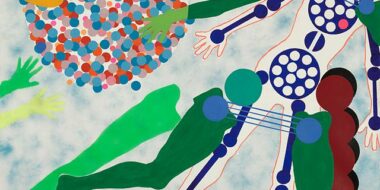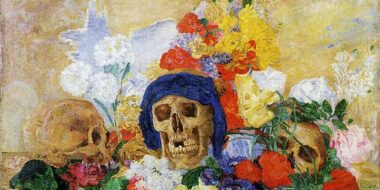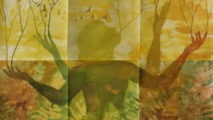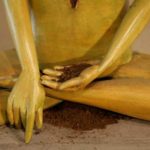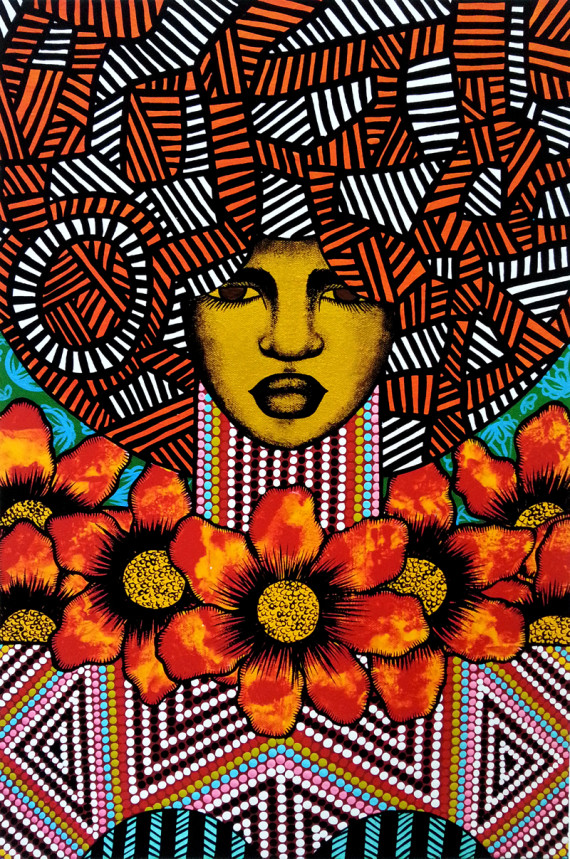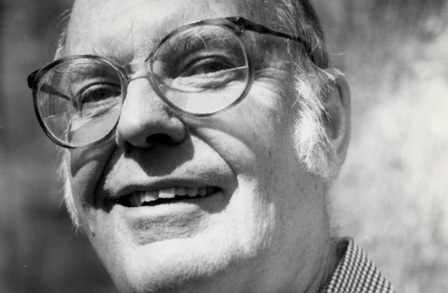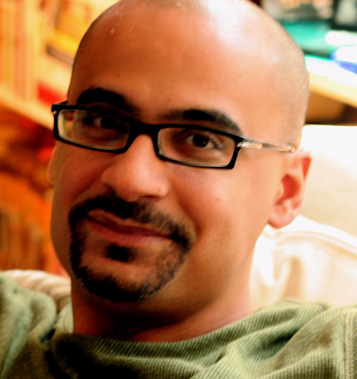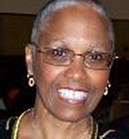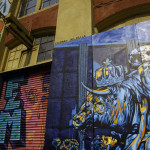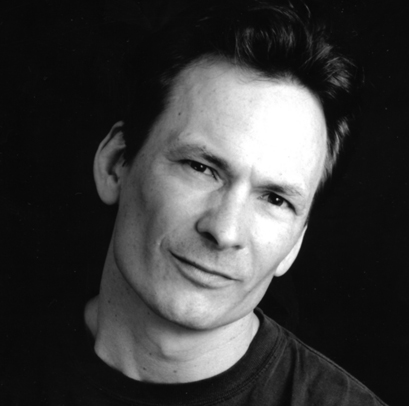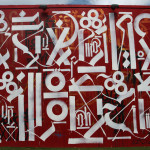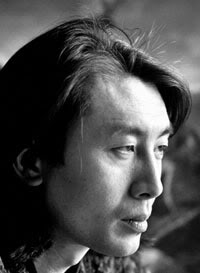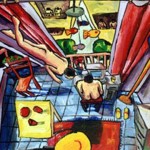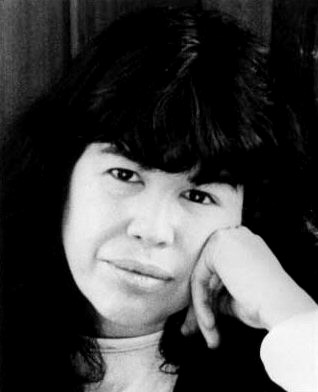HOME / MEMORY / HOME
— for the women of Ukraine
I called my home “Memory” because before I was born ancestral voices instructed me to lay down my wings, go to sleep in the sea, and rise in the land of my mother.
Strong underground waters brought me to her. My first step became an anchor.
Her people were barbarians of distant origin, moved by pursuit through hostile lands. Centuries ago they raised a singing stone against the sky so that hundreds of years later it might beckon them back across the breath-bridge they called “Memory.”
My mother said I bore the mark of a mysterious incandescence, which meant someday I would gather our people to heaven. She told heaven and home were the same, so I called my heaven “Memory.”
And when our destroyer appeared, we swept our tears through the gutters to clean the smell of their metals from our streets. It was a sacrament to listen to the rushing flood in the cold muddy dusk. The flood moved our souls smoothly between the billboards and the lakes, the dead and the living. We called the flood “Memory.”
Like a blood influxion, positioned between my shoulder blades and lungs, it spread through my skin and under my oxygen. My veins became inroads, my lungs telephones, my aorta a radio. More whirlwind than water, it carried me. And what I didn’t know, Memory knew, and where I flowed, Memory had always been.
The stone my ancestors raised called out through my skin, and across the breath-bridge, and into every kitchen.
The wings I’d laid down appeared on the shoulders of those who rose above the flood, above encroaching death. Their forms shone bright against the sky, ringed with light.
I watched from the ground. Ancestral spirits had changed my flood-feet to Earth-feet, for their own reasons.
When the flood receded all was quiet. Not a soul remained, except for me.
I am alone. But I know memory will bring me home.
And so I call my memory “Home.”
Includes phrases from Max Jacob, translator Michael Benedikt; Atilla Joszef and Gyula Illyes, translator John Bakti; Mutsuo Takahashi, translator Hiroaki Sato — From The Prose Poem, An International Anthology, edited by Michael Benedikt, Dell Books, 1976
NEXT LET US PRAISE ILLUSTRIOUS MEN
—after Rose Castellanos, Mexico, 1925-1974
Next let us praise illustrious men,
ancestors of many generations.
Let us visit their gallery on National Picnic Sunday —
see how their statues stare past us,
mysterious as ancient carved stones?
Here is the head of a long-dead governor,
funny little Boswell around the jowls.
Masses of families on long-awaited holiday
squint at his inscription:
“They brought us parrots, armfuls of fruit . . .
they willingly traded everything they owned . . .
taking fifty of them captive I made slaves of the entire island . . .
in an hour I possessed three hundred men and their families.”
Let us walk past the open-mouthed crowd
And observe what happens when I say,
“Did you know his name means
‘rank old mutton wearing a snail mitten’?”
See how the upstanding grandfathers shake their fists?
Let us continue to praise illustrious men
whose children’s children stand safe today
in the shelter of their accomplishments.
Next is the famous sixteenth century civil servant,
his serene eyes ever heavenward.
See his fashionable pencil mustache?
See the young mother dipping her fingers
into the chiseled letters of his most famous utterance?
“Let us in the name of the Holy Trinity capture as many of these natives
as can be sold.”
I whisper in her ear:
“It is by following a trail of cheap perfume
that one discovers fresh air.”
See how she looks at me in horror?
She how she looks for a policeman?
Next let us praise the men who own death,
the men who took death from others
and wore it for a crown.
For instance, this famous sailor,
frowning like a sad basset hound in repose.
A wide-eyed child reads his legend aloud:
“Our work was to exasperate and ravage, mangle, destroy and kill.
We cut off slices of their bodies to test the sharpness of our swords.”
I tap the child on the shoulder:
“Did you know the natives fed poison to their babies
— to save them? In two years, half the Indians were dead.
In two hundred years,
all were gone.”
His mother spirits him away,
while I smile gently —
I know the blows that truth delivers.
Here, finally, is the still-living jolly philosopher man,
who once opined If not dominion then what?
I once wondered “If not poetry then what?”
I was not so old when he stole the words of my youth
from my mouth and gifted them to his wife,
who then grew an extra set of legs
so she could wear ever more
beautiful shoes.
This whole rotund multitude —
like cheap collectibles in a curio.
Yet I do not want to harm them,
send their bloated corpses floating
to the bottom of a lake.
Right now, outside my kitchen window,
in a crevice between missing bricks,
the wing of a dead fledgling sparrow
is becoming a fan of bones.
So let us praise illustrious men,
their faces inscrutable
as ancient carved stones —
the stones beneath which they buried
our mothers alive.
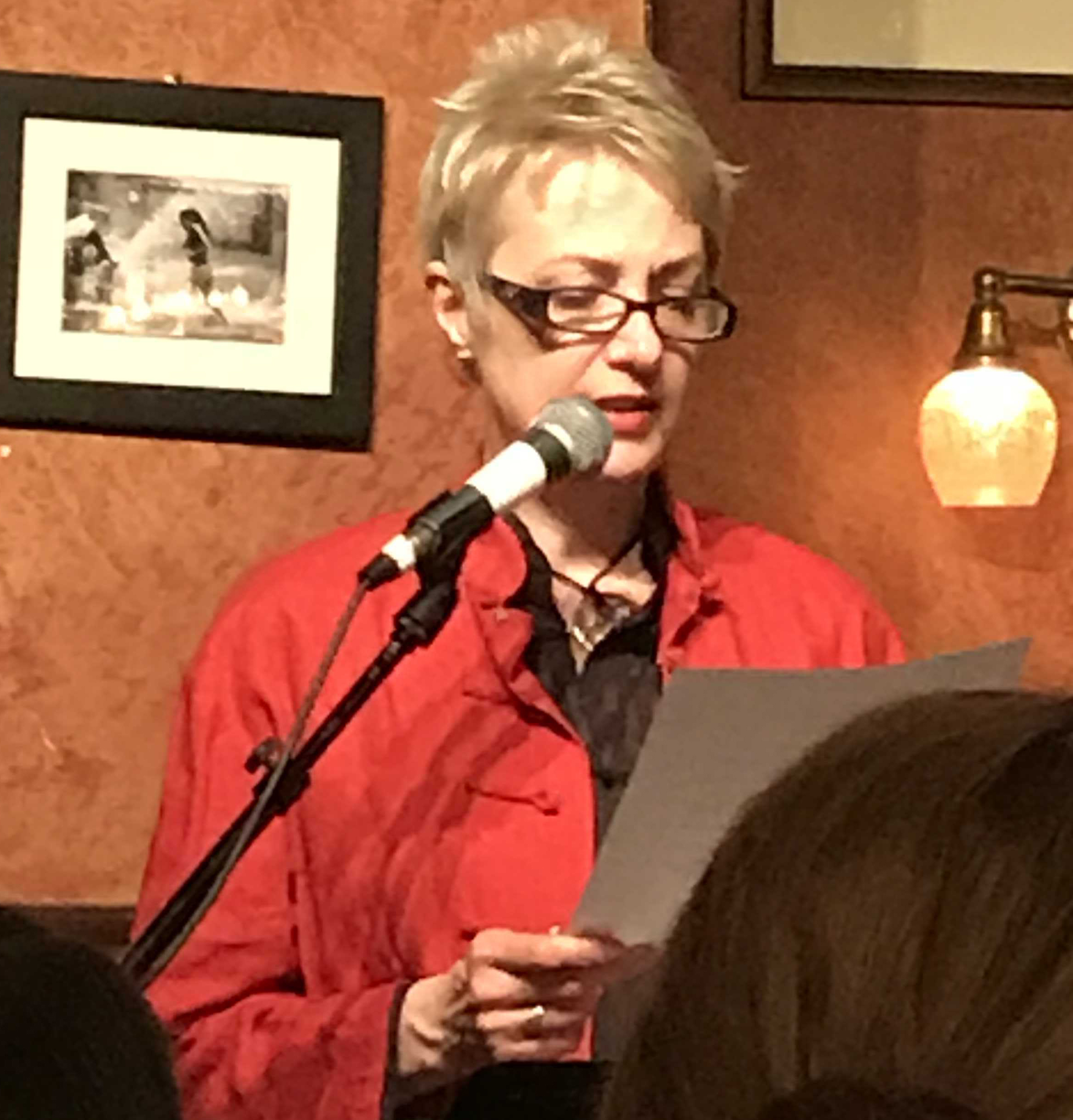 Sharon Mesmer’s most recent poetry collection, Greetings from My Girlie Leisure Place (Bloof Books), was voted “Best of 2015” by Entropy Magazine. Other poetry collections are Annoying Diabetic Bitch, The Virgin Formica, Half Angel/Half Lunch and Vertigo Seeks Affinities (chapbook, Belladonna Books). Four of her poems appear in Postmodern American Poetry: A Norton Anthology (second edition, 2013). She has published the fiction collections The Empty Quarter and In Ordinary Time, from Hanging Loose Press, and Ma Vie à Yonago from Hachette in French translation. Her essays, reviews and interviews have appeared in the New York Times, New York Magazine, Paris Review, American Poetry Review, Commonweal, and The Brooklyn Rail. She teaches in the undergraduate and graduate programs of New York University and The New School
Sharon Mesmer’s most recent poetry collection, Greetings from My Girlie Leisure Place (Bloof Books), was voted “Best of 2015” by Entropy Magazine. Other poetry collections are Annoying Diabetic Bitch, The Virgin Formica, Half Angel/Half Lunch and Vertigo Seeks Affinities (chapbook, Belladonna Books). Four of her poems appear in Postmodern American Poetry: A Norton Anthology (second edition, 2013). She has published the fiction collections The Empty Quarter and In Ordinary Time, from Hanging Loose Press, and Ma Vie à Yonago from Hachette in French translation. Her essays, reviews and interviews have appeared in the New York Times, New York Magazine, Paris Review, American Poetry Review, Commonweal, and The Brooklyn Rail. She teaches in the undergraduate and graduate programs of New York University and The New School
Related Posts
« THE COLONY OF ART by David Galef A Poem for Those Days When You Think It Better if You Were Anything Else But Human by – Luis Pabon »


